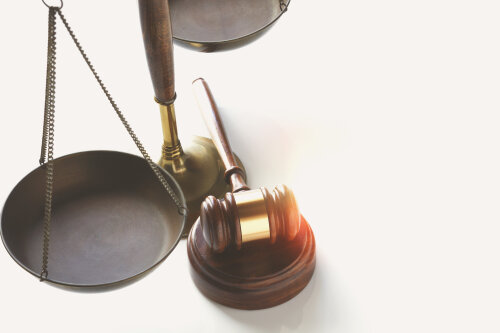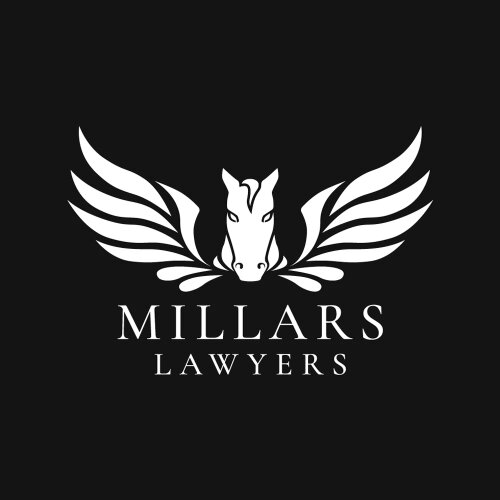Best Truck Accident Lawyers in Canada
Share your needs with us, get contacted by law firms.
Free. Takes 2 min.
Or refine your search by selecting a city:
List of the best lawyers in Canada
About Truck Accident Law in Canada
Truck accidents in Canada involve incidents where large commercial vehicles collide with other vehicles, pedestrians, or infrastructure. Given the size and weight of trucks, these accidents can result in severe injuries or fatalities, complex litigation, and significant legal challenges. In Canada, truck accident law covers various aspects such as liability, insurance claims, and compensation for damages. The laws governing these accidents are designed to protect victims and ensure responsible parties are held accountable.
Why You May Need a Lawyer
Legal advice can be crucial in the aftermath of a truck accident. A lawyer specialized in this field can help in numerous ways. Firstly, they can assist in determining liability, which might involve multiple parties like the truck driver, trucking company, and even manufacturers. Secondly, lawyers can help navigate the intricate process of insurance claims to ensure fair compensation. Additionally, they can represent victims in court if a settlement can't be reached and ensure that all legal avenues are explored for obtaining damages for personal injuries, loss of income, and other impacts. Lastly, they help gather necessary evidence, handle communications with opposing parties, and provide peace of mind while one recovers from physical and emotional trauma.
Local Laws Overview
In Canada, truck accident laws are influenced by federal, provincial, and territorial regulations. Federally, the Canada Transportation Act regulates various aspects of trucking, including safety and operational standards. Provinces and territories have their own traffic laws that affect trucking. Key aspects in Canada include mandatory insurance requirements, rules on driver fatigue and hours of service, and vehicle maintenance standards. Understanding these laws is crucial in establishing liability and developing a legal strategy following an accident.
Frequently Asked Questions
1. What should I do immediately following a truck accident?
Ensure your safety and that of others, call emergency services, obtain medical attention, and gather as much information as possible from the accident scene, including contact details from witnesses and photos of the accident site.
2. How is fault determined in truck accidents?
Fault is determined through investigation and analysis of evidence, including witness statements, police reports, and expert testimony such as accident reconstruction specialists.
3. Can I claim compensation if I share some fault in the accident?
Yes, under Canada's contributory negligence rules, you may still receive compensation, though it might be reduced in proportion to your level of fault.
4. What kind of compensation can I seek?
Victims can seek compensation for medical expenses, lost wages, pain and suffering, property damage, and rehabilitation costs.
5. How long do I have to file a claim following a truck accident in Canada?
The time limit, known as the statute of limitations, typically ranges from two to four years depending on the province or territory, but it is crucial to consult a lawyer as soon as possible.
6. Do truck drivers have special insurance requirements?
Yes, commercial truck drivers and companies must hold insurance that covers potential liabilities arising from accidents. This often includes higher coverage limits than typical personal vehicle insurance.
7. Can I sue the trucking company for the driver’s negligence?
Yes, under the principle of vicarious liability, a trucking company could be held liable for the actions of its employees, including truck drivers.
8. What if the truck accident involves a company from another province or country?
Inter-jurisdictional considerations might apply, but victims still have the right to pursue claims according to the laws where the accident occurred.
9. What role do government agencies play in truck accident cases?
Government agencies may provide accident reports and enforce regulations that can impact liability or breach of duty findings in a case.
10. Can my case be settled out of court?
Many truck accident cases are settled out of court through negotiation or mediation, potentially saving time and legal expenses.
Additional Resources
For those seeking more information, helpful resources include Transport Canada, the Insurance Bureau of Canada, and legal societies in each province that can offer referrals to qualified truck accident lawyers. Also, many legal organizations provide guides and free consultations to help individuals understand their rights and options.
Next Steps
If you need legal assistance following a truck accident in Canada, it’s advisable to contact a lawyer who specializes in personal injury or truck accident cases. Begin by collecting all relevant documents, such as medical records and accident reports. Consultations are often free, allowing you to discuss your case without immediate financial commitment. A lawyer will guide you through the necessary legal processes and work toward obtaining the compensation to which you may be entitled.
Lawzana helps you find the best lawyers and law firms in Canada through a curated and pre-screened list of qualified legal professionals. Our platform offers rankings and detailed profiles of attorneys and law firms, allowing you to compare based on practice areas, including Truck Accident, experience, and client feedback.
Each profile includes a description of the firm's areas of practice, client reviews, team members and partners, year of establishment, spoken languages, office locations, contact information, social media presence, and any published articles or resources. Most firms on our platform speak English and are experienced in both local and international legal matters.
Get a quote from top-rated law firms in Canada — quickly, securely, and without unnecessary hassle.
Disclaimer:
The information provided on this page is for general informational purposes only and does not constitute legal advice. While we strive to ensure the accuracy and relevance of the content, legal information may change over time, and interpretations of the law can vary. You should always consult with a qualified legal professional for advice specific to your situation.
We disclaim all liability for actions taken or not taken based on the content of this page. If you believe any information is incorrect or outdated, please contact us, and we will review and update it where appropriate.
Browse truck accident law firms by city in Canada
Refine your search by selecting a city.















